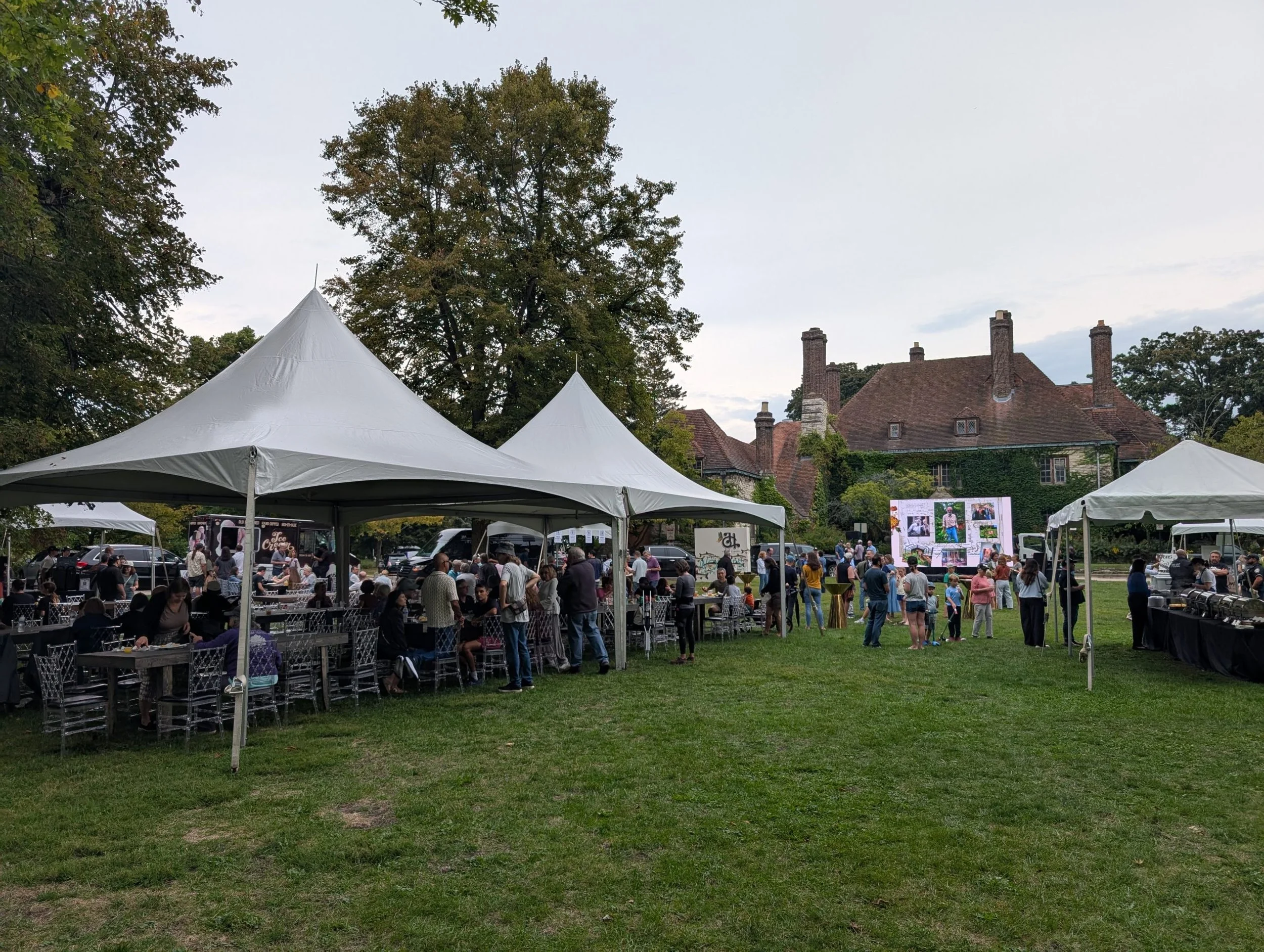by Alex Harrison
Zoning and preservation approval still to come this year, but developer says first wedding dates are already booked
The mansion’s future has been up in the air since 2011, and the building has been officially vacant since the Evanston Art Center departed in 2015. In October 2024, City Council picked Celadon’s nonprofit arm for the latest attempt at pursuing a new long-term use for the derelict property — the sixth option pursued since discussions began — and later approved lease terms in March, shortly before the April 1 local elections.
The project’s political weight was on display Saturday, with State Rep. Robyn Gabel (D-18th District), Mayor Daniel Biss, City Clerk Stephanie Mendoza and six of Evanston’s nine sitting councilmembers in attendance. Invited to speak, Biss joked that he only considered running for mayor in 2021 because he thought council was set to decide the mansion’s future before he took office, only for an approved plan with Artists Book House to fall through in January 2023.
Despite it being a reminder to “never count your chickens before they hatch,” Biss said he’s happy with where the project ended up.
“This beautiful building is going to be restored, it’s going to be gorgeous, it’s going to be publicly accessible for so much of the time,” he said, “and there’s a partnership that allows the continued work of the Jens Jensen Gardens group [to maintain the mansion’s grounds].”
Zoning and preservation hearings coming soon
Speaking to the RoundTable after his remarks, Henry confirmed that construction is expected to start this January, with the venue opening for business in January 2027. He said there are already “lots of people with dates signed up for their wedding events” at the restored space. Before work can begin, though, the project still has to go through one more round of city hearings for zoning and preservation approval.
On the zoning side, the building’s restoration and new use as a wedding and event venue with hotel rooms and public shops will be considered as a “unique adaptive use,” a permit tailored to allow atypical building conversions that “preserve and assure the continued existence” of historic properties like Harley Clarke. This application will go through a hearing at the city’s Land Use Commission, which will take a recommendation vote before sending it off to City Council for final approval.
At the same time, the project will go through a separate hearing with the Preservation Commission to get approval to renovate the nearly century-old mansion, which is protected as a local landmark property. The commission is typically the final ruling body on preservation matters, but Celadon could appeal to the City Council in the event of a rejection.
Henry said city staff have been “fantastic to work with” in this process, which he said is expected to finish by the end of this year, with further preparations happening on Celadon’s end to get to work quickly in the new year.
“Our contractors are bidding the project, and they’ll be able to start construction right after we have those approvals,” Henry said. “We do these kinds of projects all the time. We can very predictably build them in 12 months.”
Celadon has launched a website, TheHarleyClarkeMansion.com, for more information and updates on the project.
